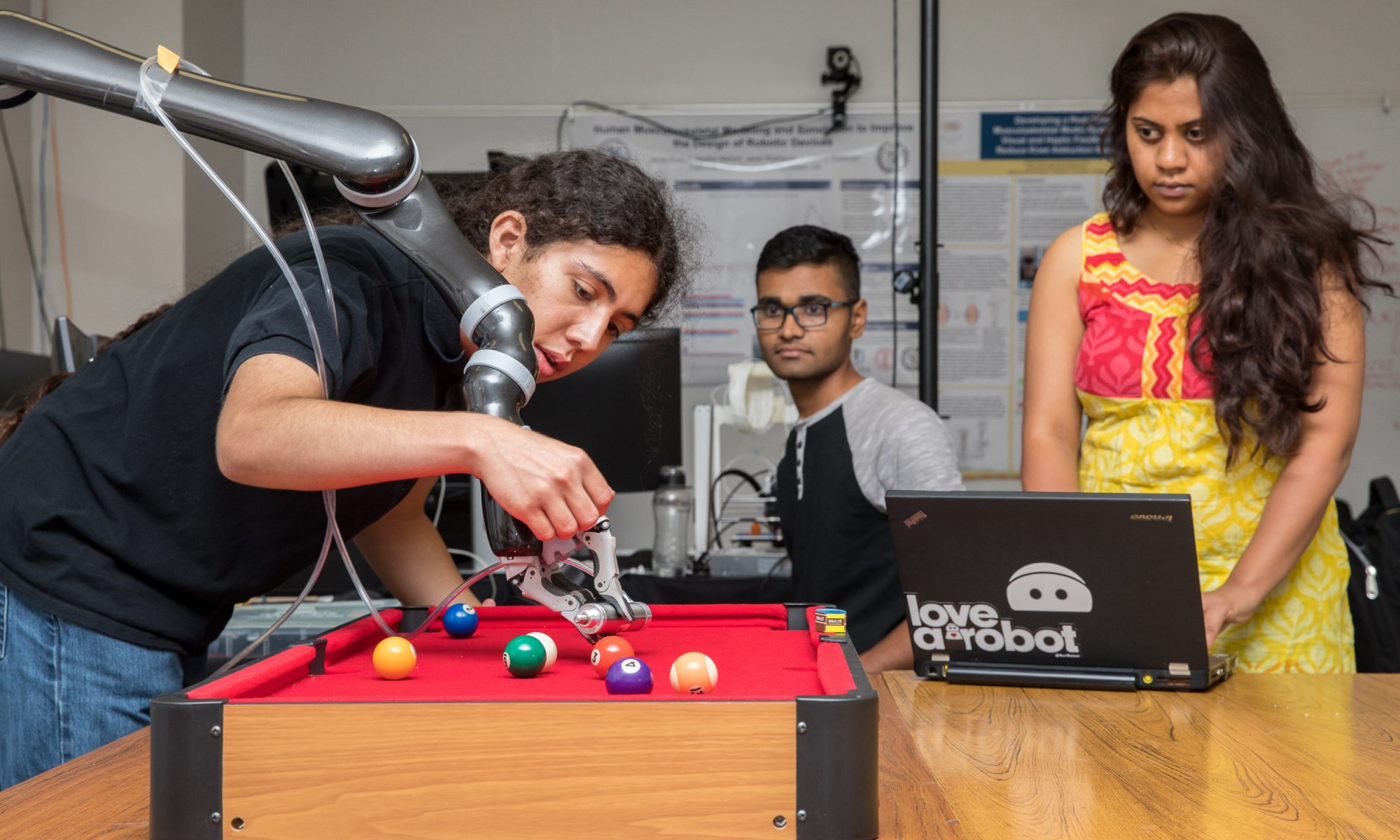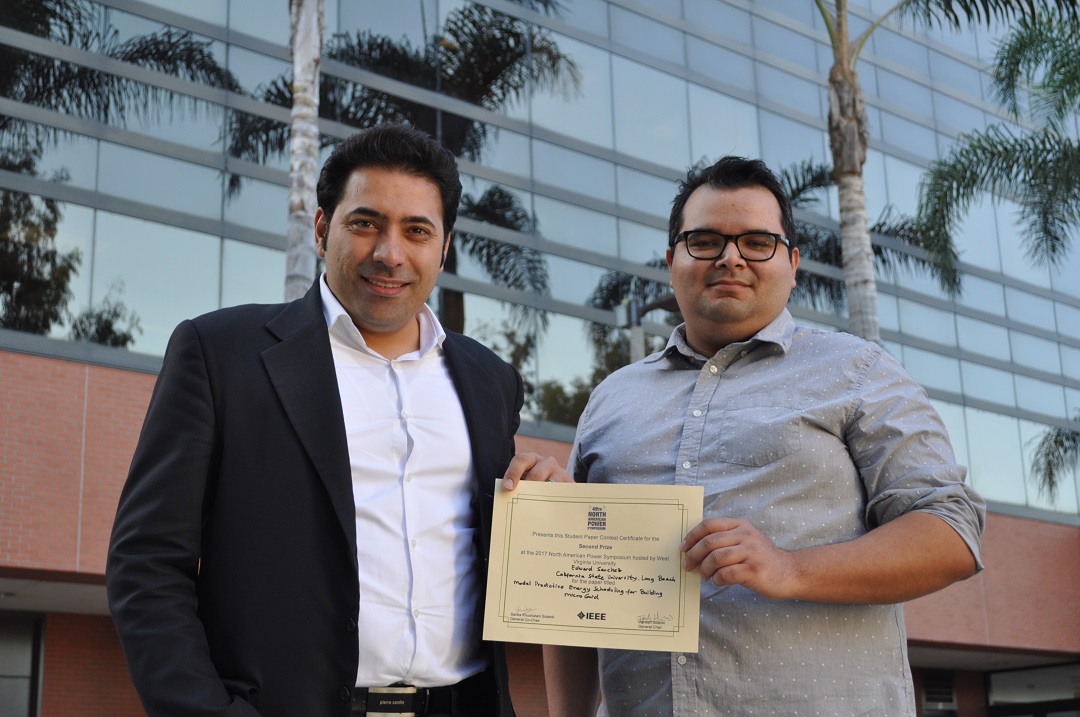While an undergraduate at UCLA, Edward Sanchez gravitated toward research. His skill recently shone through at the IEEE 2017 North American Power Symposium (NAPS), where he won a Best Paper Award.
The paper, “Model Predictive Energy Scheduling for a Building Microgrid,” details how to design a control system to coordinate the micropower sources and utility grid demand of a proposed building microgrid. The research is part of a $2.5 million California Energy Commission project to turn the Engineering & Computer Science Building into a Smart Building.
Sanchez, an electrical engineering master’s student who plans to pursue a Ph.D., has a strong interest in microgrid control systems. “It’s definitely something that’s hot right now,” he said. “It has a lot of potential.”
EE Assistant Professor and advisor Masoud Nazari said he’s proud of his student. “I was excited. His success is my success,” said Nazari, who is primary investigator of the ECS Smart Building project. “There were more than 200 papers from all around the world presented in two consecutive days. Large schools participated and Edward received the second prize.”
Sanchez’s paper used a Model Predictive Control (MPC) approach to develop a peak demand cost model to extend microgrid energy scheduling. Sanchez found that the MPC-based controller resulted in better cost savings to the proposed building microgrid than an open-loop implementation.
Each phase presented its own challenges. “The uncertainty that comes from not knowing when (or if) your experimentation will bear success, especially when working on a tight schedule, can be challenging,” Sanchez said. “Though each new unsuccessful experiment can bring new insight, which brings you closer to success.”
Sanchez said he’s learned the importance of clearly conveying ideas and insights in technical papers. “Writing a high-quality paper may require many revisions to get down just right, even with experience, though Professor Nazari provided plenty of useful feedback on my drafts that I think have helped me strengthen my technical writing skills,” he said.
In his conference presentation, he chose to convey his ideas briefly and clearly using diagrams and plots instead of detailed equations.
Sanchez actually looks forward to presenting. “It allows me to get a feel of my understanding of my own work by seeing how successfully I can convey my work to others right then and there.”


